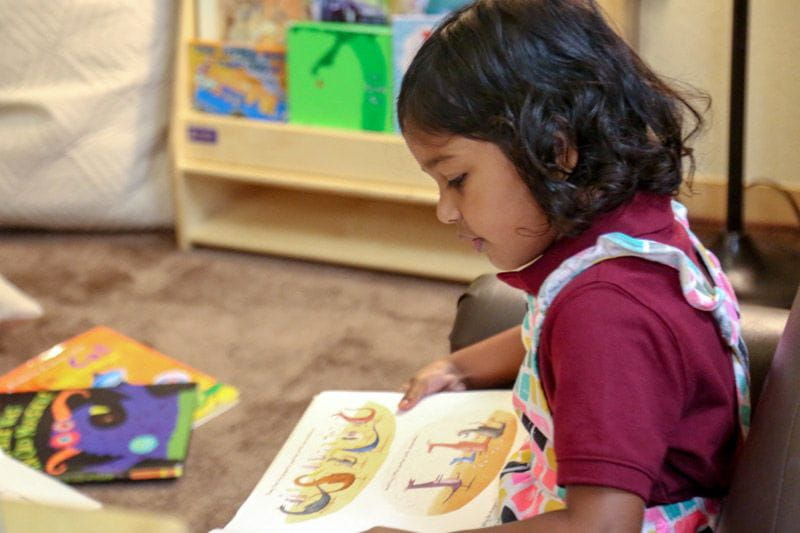With so much focus on the family member who is ill, the thought of explaining a serious illness to your young child might seem overwhelming, especially if you think your child won't be able to understand what is happening.
The reality is that regardless of how we may try to keep information private and family activities routine, children overhear conversations. They realize at some level that we are not fully present. Their reactions, of course, will be more intense if the sick family member is living in your home. When they see a sibling, grandparent or parent in bed or going to appointments, they feel the sadness that radiates at home and they know that something is wrong.
The lack of knowledge fills their lives with uncertainty and increased fear. By sharing appropriate information, you enable your child to:
- Trust that adults will give her information that she needs
- Work through her own feelings
- Be included rather than isolated
- Feel safe asking questions
- Be able to help in her own way
As long as your child has verbal skills, there are ways to communicate about the illness, treatments and if appropriate, the prognosis. The amount of information a child can handle depends upon her stage of development. A child's understanding of illness and death changes dramatically as she develops.
Every family needs to judge for themselves what their child can understand. Physicians, social workers, clergy and therapists can share resources and guide you through the conversations that help your family situation. Below are a few general tips:
Plan for the Conversation
Think about when and where to have it, e.g. mornings rather than at bedtime; sitting on a couch rather than in the car. Plan what you want to say and how you intend to say it. Talk with other adults, role play, or look at resources before starting the conversation. Be aware of your tone and body language. Think about your child's ability to comprehend and process information.
Start the Conversation
With a young child, it's best to keep the explanation simple. "We are sad because Pop-pop is sick. He has a disease called diabetes. We are visiting the doctor a lot so we can learn how to take care of Pop-pop." Give children information but also give them time to process it. Observe your child's reaction and respond honestly, in simple language. If optimism is realistic, be reassuring.
Pertinent information that you might provide depends on the age of your child. Consider sharing:
- The name of the disease or illness
- Ways that your child might help the family member
- Changes that might be made to the environment (i.e., addition of oxygen or an I.V.)
- Whether the disease is contagious
Support for Your Healthy Child
At times it's difficult to focus on your healthy child when there is a family member who is seriously ill. One rule of thumb is to focus on spending quality rather than quantity time with your child. Try to be fully present when you are together. Offer lots of physical contact, ask questions about his/her thoughts and feelings, and let him/her know that you miss spending more time together. Below are a few tips for supporting a child:
- Acknowledge your child's feelings (anger, sadness, jealousy, worry, guilt, etc), but also understand that young children can't always label their feelings and may instead express them through their actions. For example, your child may be more whiny or clingy than usual. Be accepting of these kinds of changes.
- Find ways for your child if she wants to help; e.g. push a wheelchair, carry a backpack for the person who is ill, dictate sentiments on a card or draw pictures.
- Carefully consider whether it is appropriate for your child to visit the hospital. Will it be reassuring to your child or perhaps upsetting? If you do decide to have your child visit the hospital, explain in advance how her family member will look to help prepare her.
- Keep routines as consistent as possible; prepare your child for anticipated changes in her day, and when possible make her part of the process by giving choices.
Every family feels differently about sharing private matters; however it is important to communicate with other significant adults in your child's life. Teachers and caregivers who have a trusting relationship with your child can be a tremendous support for your family. They may be able to give your child extra love and attention and be aware of feelings that are expressed by different behaviors.
Helping children deal with a family member's serious illness can be challenging. By talking with children about the illness, you may relieve their fears, legitimize their feelings, and give them the message that they are respected members of the family.
More Resources on This Topic
- KidsHealth tackles the challenging topic of Caring for Siblings of Seriously Ill Children.
- BabyCenter provides resources for parents of preschoolers in How to talk to your child when someone is seriously ill.
- The Dana-Farber Cancer Institute offers advice for parents: Talking to your children about cancer.





